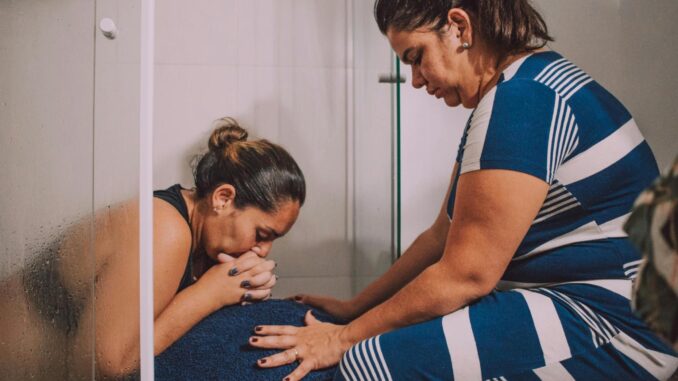
BY HAILEY COGNETTI
The NYC City Council’s recent passage of a maternal legislative package underscores a troubling reality: for many people who give birth in the city, childbirth remains fraught with preventable complications. These bills, passed on Oct. 10, are intended to improve the transparency around maternal deaths, and expand resources, especially for black women and other marginalized groups who face far higher risks of maternal mortality.
According to a NYC Health Department published report in 2019, the most recent available, maternal mortality in NYC has declined since 2001, but Black women remain nine times more likely to die from pregnancy related causes compared to White women. Most recently, there have been three maternal deaths during Cesarean Sections surgery at the city run Woodhull Medical Center.
Council Speaker Adrienne Adams recently emphasized the racial disparity in maternal deaths as “a disturbing pattern of injustice.”
But advocates argue that the legislation, while a step forward, does not go far enough to address the systemic racism driving NY’s maternal mortality crisis.
Dr. Deborah Kaplan, a former assistant commissioner for the NYC Department of Health’s Bureau of Maternal, Infant, an Reproductive Health, headed a team that became the first in the nation to study severe maternal morbidity. A 2020 Health Dept. report revealed that for every maternal death, approximately 100 women experienced near-fatal complications. The report helped to shift public attention toward the broader crisis of maternal health.
Dr. Kaplan acknowledges the importance of the Council’s legislative efforts; but she finds the bills “underwhelming.”
“I’ll say I was quite underwhelmed by what the city council passed,” Dr. Kaplan said. “Not only does it not get to the root cause, but much of what they asked for, the health department already does.”
At an NYU panel on Oct. 17 Sideya Sherman, NYC Chief Equity Officer Commissioner emphasized similar beliefs, “Addressing black maternal mortality is without a question a systems issue.”
“We know that within our healthcare system, patients of color frequently experience bias, and providers often lack the training they need to provide culturally competent care. We know that too often black patients, and you know I’ve experienced this myself, are left to advocate for their own survival in spaces that should be prioritizing their well being,” Sideya Sherman said.
Dr. Kaplan, who now is a board member of the Aria Foundation, believes addressing maternal health issues means rethinking how prenatal, perinatal, and postnatal care are structured. The current system, she points out, is too dependent on obstetricians who, although essential for high-risk cases, often rely on surgical interventions in births that could be managed more naturally by midwives.
“Pregnancy is not a medical complication, and it’s so medicalized,” Dr. Kaplan said.
Dr. Kaplan advocates for birthing centers and midwife-led care as alternatives to hospital births.
“We need birthing centers where people have the option to have a home birth or birthing center everywhere in the city and the country. Now, your only option for most births is a hospital and that is not a friendly place to give birth. Even if you have a midwife, you don’t have to be in a hospital,” Dr Kaplan said.
While the bills focus on expanding resources, Dr. Kaplan believes the healthcare system needs to be restructured from the ground up. These changes in maternal care might look like midwives and doulas ingrained into the healthcare system, and broader Medicaid coverage for postpartum care expanding to at least one year.
As Dr. Kaplan put it, “what they passed is barely scratching the surface of what’s needed.”
Dr Leslie Hayes, Deputy Commissioner said the NYC government is committed to reducing maternal mortality.
“At the Health Department one of our goals is Healthy NYC, and that is to increase the life expectancy of all New Yorkers to the age of 83 by 2030, and include in that is the goal to reduce Black maternal mortality by 10% by 2030 as well,” Dr Leslie Hayes said.
